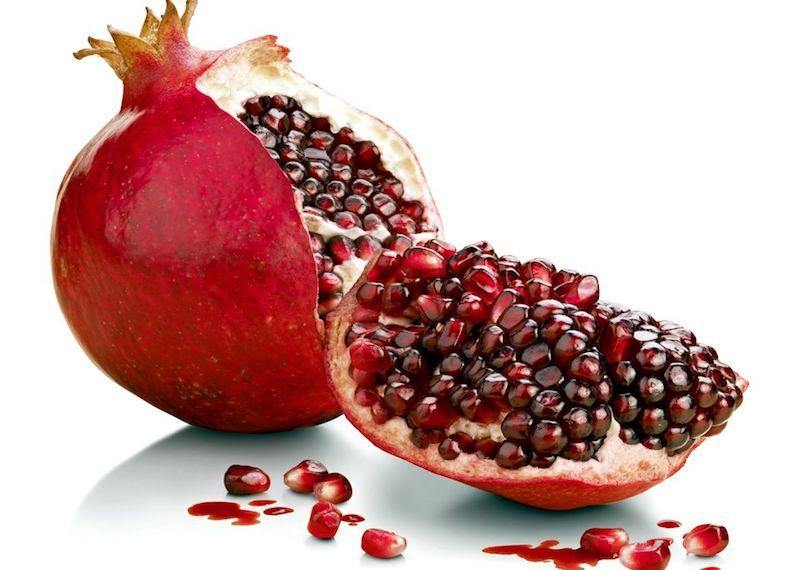Dadima (pomegranate)
The pomegranate is botanically identified as Punica granatum Linn. from the family Lythraceae (Punicaceae), is a fruit-bearing shrub or small tree that grows up to 8mt. tall. The edible fruit is a berry with a rounded shape, reddish skin. The fruit is rich in polyphenols which act against cancers. It has proved an anti-proliferative, anti-metastatic and anti-invasive effect on various cancer cells through in- vitro as well as in- vivo study. It is considered as tridoshahara in Ayurveda, highly rich in antioxidants, iron, vitamins, minerals etc.
Preparation of juice of Dadima
Collect fully ripened Dadima phala from market remove the outer thick red colored skin, separate the seed coated with fleshy edible sarcotesta ranging in color from white to deep red. Take one cup of seed add a half cup of water and pulse it for few minutes until the outer layer of seed break and release the juice. Sieve the juice through a metal strainer, press pulp using the back side of a spoon to extract as much juice as possible. Pour the prepared juice into a glass and serve immediately to get maximum nutritional elements. If it is consumed regularly, it prevents many nutritional deficiencies, a risk of cancers and Heart diseases.
Other uses: Apart from the above-described benefits, the dried fruit skin powder is a best safe home remedy in the management diarrhea and dysentery in all age groups.

Dr.Rejukrishnan MD (Ayu)
Dr.Rejukrishnan completed BAMS from Muniyal Institute of Ayurveda medical science Manipal, Karnataka in 2007, and MD (Ayu) in Dravyaguna from A.L.N.Rao memorial Ayurveda medical college Koppa, Chikkamangalore, Karnataka in 2012, under Rajiv Gandhi University of health science Bangalore. Working as an Assistant professor in Dravyaguna department with a teaching experience of 4 years.


0 comments